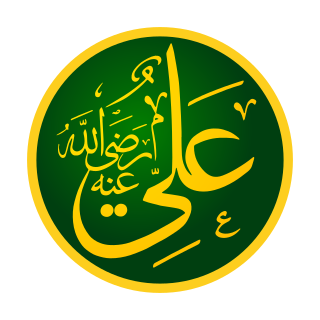 W
WAbbas means "Lion" in Arabic The name traces back to Al-‘Abbas ibn ‘Abd al-Muttalib and Abbas ibn Ali, a son of Ali ibn Abi Talib, who participated in the battle of Karbala alongside his master and Imam of the time Husayn ibn Ali. Abbas ibn Ali is revered by Shia Muslims, some of whom are named Abbas in remembrance and tribute to him. There is an Arabian tribe of the same name, the Banu Abbas.
 W
WAbdelrahman or Abd al-Rahman or Abdul Rahman or Abdurrahman is a male Arabic Muslim given name, and in modern usage, surname. It is built from the Arabic words Abd, al- and Rahman. The name means "servant of the most gracious", ar-Rahman being one of the names of God in the Qur'an, which give rise to the Muslim theophoric names.
 W
WAbu Bakr was a sahabi, one of the companions of Muhammad and the first Caliph of Islam. He was also Muhammad's father-in-law through Aisha. His real name was Abdullah or Abul-Kaaba and Abu Bakr was his kunya.
 W
WAli is a male Arabic name derived from the Arabic root ʕ-l-w, which literally means "high", "elevated" or "champion". Islamic traditional use of the name goes back to the Islamic leader Ali ibn Abi Talib but the name is also present among some pre-Islamic Arabs and identical in form and meaning to the Hebrew: עֵלִי, Eli, which goes back to the High Priest Eli in the biblical Books of Samuel.
 W
WBilal is both a given name and a surname of Arabic origin. Notable people with the name include:
 W
WFarooq is a common Arabic given and family name. Al-Fārūq literally means "the one who distinguishes between right and wrong."
 W
WHabib, sometimes written as Habeeb, is an Arabic masculine given name, occasional surname, and honorific, with the meaning "beloved" or "most loved".
 W
WHassan or Hasan is a masculine Arabic given name.
 W
WHisham is an Arabic male given name which means "generous". It is not to be confused with the similar looking, but unrelated, Hashim.
 W
WHussein, Hossein, Husayn, or Husain, coming from the triconsonantal root Ḥ-S-N, is an Arabic name which is the diminutive of Hassan, meaning "good", "handsome" or "beautiful". It is commonly given as a male given name, particularly among Shias. In Persian language contexts, the transliterations Ḥosayn, Hosayn, or Hossein are sometimes used. In the transliteration of Indo-Aryan languages, the forms "Hussain" or "Hossain" may be used. Other variants include Husein, Husejin, Husejn, Husain, Hussin, Hussain, Husayin, Hussayin, Hüseyin, Husseyin, Huseyn, Hossain, Hosein, Husseyn (etc.). The Encyclopaedia of Islam, which is following a standardized way for transliterating Arabic names, used the form "Ḥusain" in its first edition and the form "Ḥusayn" in its second and third editions.
 W
WIbrāhīm is the Arabic name of the prophet and patriarch Abraham and one of Allah's messengers in the Quran. It is a common first name and surname among Muslims and Arab Christians, a derivative of the name Abraham or Avram from Judaism and Christianity in the Middle East. In the Levant and Maghreb, Brahim and Barhoum are common diminutives for the first name Ibrahim.
 W
WIlyas is a form of the masculine given name Elias or Elijah, and may refer to:
 W
WIsa is a name originating from a variety of sources. The name is most commonly derived from the classical Arabic عيسى ‘Isa, an Arabic translation of Jesus, itself having a Hebrew origin. However, it is not the only translation; it is most commonly associated with Jesus as depicted in Islam, and thus, commonly used by Muslims. Meanwhile, Arabic-speaking Christians usually use يسوع Yasū‘, which comes from ܝܫܘܥ Yešū‘, the Aramaic name for Jesus, although they use the name Isa too. The origin of the Qur'anic Isa is complex and is detailed below.
 W
WKhalil or Khaleel means friend and is a common male first name in the Middle East, North Africa, Central Asia and among Muslims in South Asia and as such is also a common surname. The female counterpart of this name is Khalila or Khaleela.
 W
WMoharam of Judham of Murrah of Sheba of Kahlan of Qahtanite origin is a family lineage from Egypt with ancestors from Yemen.
 W
WQaid, also spelled kaid or caïd, is a word meaning "commander" or "leader." It was a title in the Norman kingdom of Sicily, applied to palatine officials and members of the curia, usually to those who were Muslims or converts to Islam. The word entered the Latin language as Latin: gaitus or Latin: gaytus. Later the word was used in North Africa for the governor of a fortress or the warden of a prison, also in Spain and Portugal in the form with the definite article "alcayde" (Spanish) "alcaide" (Portuguese). It is also used as a male Arabic given name.
 W
WQutb, Qutub, Kutb, Kutub or Kotb, means 'axis', 'pivot' or 'pole'. Qutb can refer to celestial movements and be used as an astronomical term or a spiritual symbol. In Sufism, a Qutb is the perfect human being, al-Insān al-Kāmil, who leads the saintly hierarchy. The Qutb is the Sufi spiritual leader that has a divine connection with God and passes knowledge on which makes him central to, or the axis of, Sufism, but he is unknown to the world. There are five Qutbs per era, and they are infallible and trusted spiritual leaders. They are only revealed to a select group of mystics because there is a "human need for direct knowledge of God".